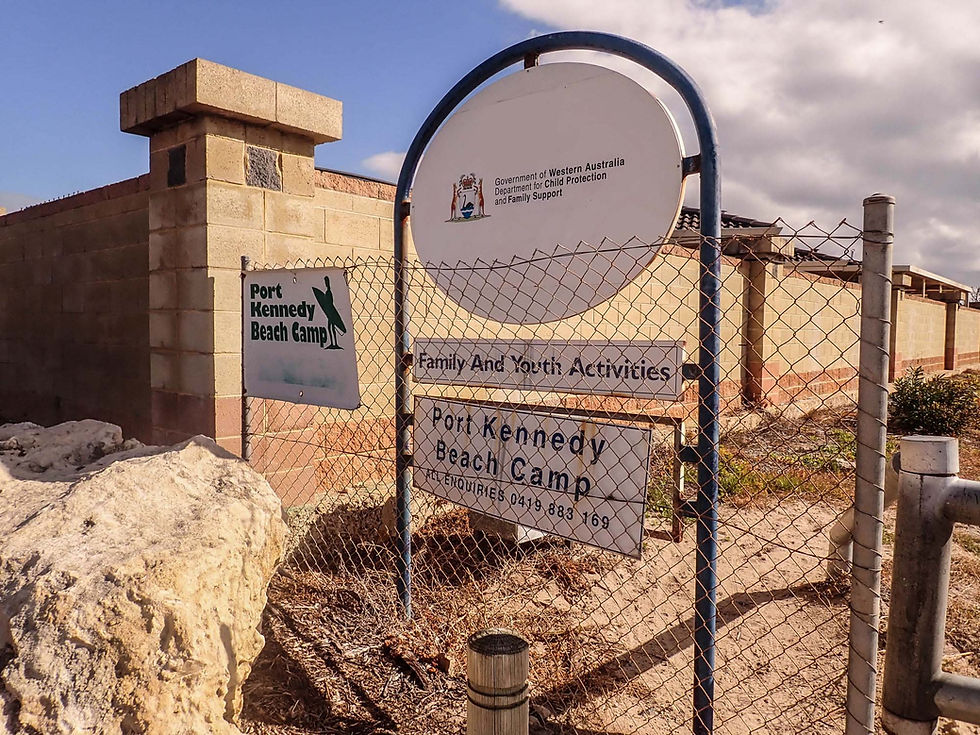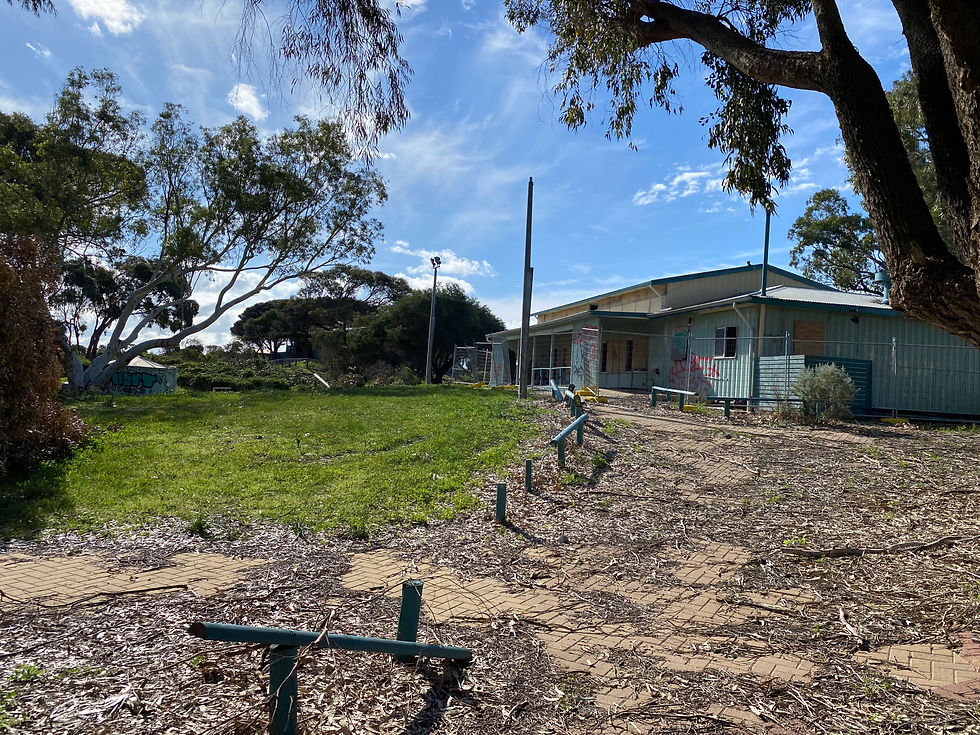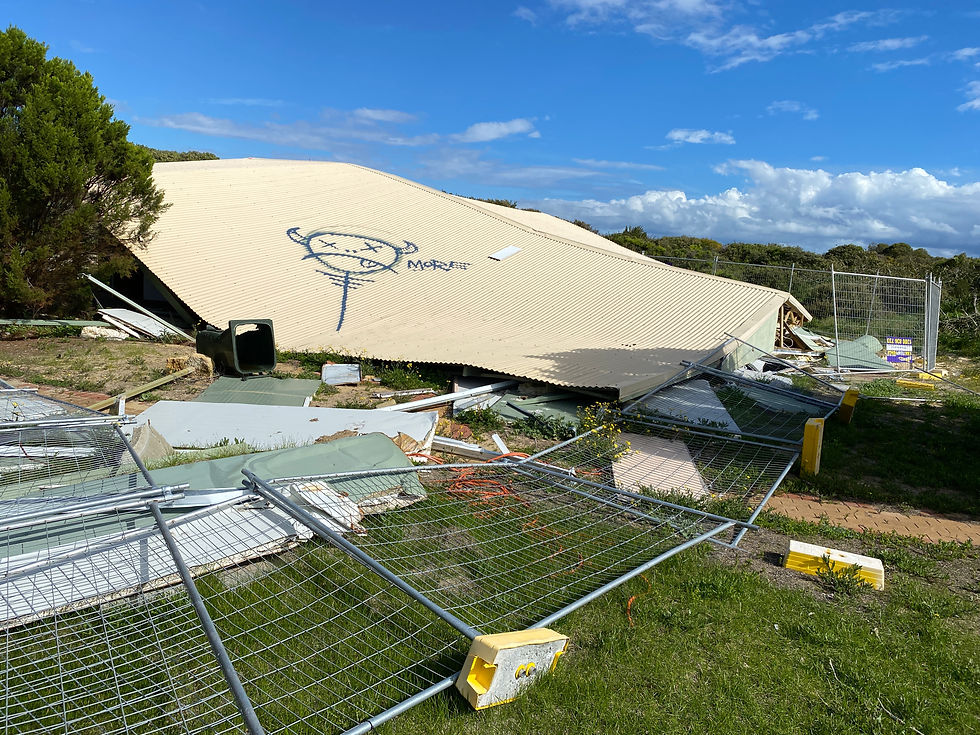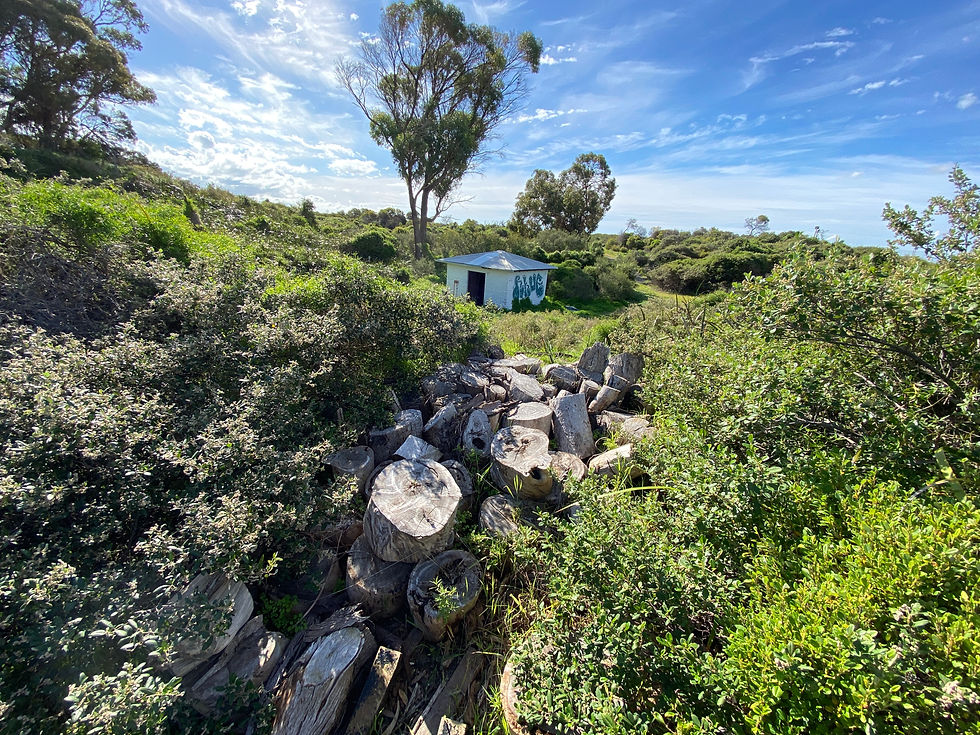YouTube Video: Port Kennedy Beach Camp
- Delphine Jamet

- Sep 11, 2020
- 3 min read
This one was different and for many reasons. It was set on a sprawling green plot, surrounded by dense beach scrub and sandy dunes. The beach was only a stones throw away, although that term must have been coined by a military strong-arm, as I most certainly had no hope of reaching that distance with any sort of projectile.

The place in question was called the Port Kennedy Beach Camp. It opened in January 1976 by the Department of Community Welfare and served as a retreat for foster children, young offenders and as a break, for both the child and their family.
Activities held at this location were commonly referred to as 'Kennedy programmes,' lasting between two and five days each and were designed for teenaged children, many of whom were offenders.
Children also served their Community Service Orders hours here, passing their time on useful projects which developed both themselves and the camp grounds. It tended to be more suited to those children who needed more, "structural assistance than is normally provided to complete the order," (Department for Community Welfare Annual Report 1979).

The ethos for Kennedy programmes revolved around personal development: developing the child's self image and appropriate peer relationships; gaining personal satisfaction, self-worth and a sense of responsibility. This was based on, "achievement and encouraging maximum participation by the young people themselves," (Department for Community Welfare Annual Report 1984) with the principles contributing to 'S.O.F.T.L.Y.' (Social Options For Teenagers Like You.)
Young people could even work towards a Duke of Edinburgh Award. According to the Department for Community Welfare's 1980 Annual Report, participants involved, "must show determined and regular effort in four different fields of activity," comprising of, "community service, expeditions, skill development in a particular interest and physical recreation."
The amount of recorded information for the Port Kennedy Beach Camp is fairly limited to annual reports published by the then, Department of Community Welfare. Current reports and planning updates is virtually non-existent.
Walking around the grounds to the soundtrack of a strong breeze rustling life into the trees and multiple breeds of birds competing for airway time, feels as close to nature as city folk get to, in these parts of the bush.

The site has sadly been deserted since 2016, which was largely as a result of its declining use. Vandalism and weather conditions over time, have caused the camp to become dilapidated. Structures have been trashed, walls are covered in holes from violent thrill seekers and sporadic graffiti has contributed to the camp's future, limited to demolishment. A few buildings have already started to collapse, exacerbating the threat of asbestos dangers.
The original buildings consisted of a hall for recreation and meals, a kitchen with a large cool room and freezer space, a disco room attached to the hall, an ablution block with laundry facilities, a power house powering the site with two separate circuits, a caretaker's residence and workshop facilities. Concrete paths were originally designed as a skate board track.

Some of the programs held here in its prime including surfing (the site is located within 500m of a popular surfing beach), beach sports, archery, canoeing, creative craft, video filming, indoor and outdoor games, fishing and skate board riding. The disco room allowed participants to project their choice of music through the amplifying system which incorporated a paging microphone, recording and cuing device.
The future of the Port Kennedy Beach Camp appears to be limited to demolition and subsequent inclusion into the surrounding Class A Reserve due to its high conservation value and Bush Forever status.
The personal stories and experiences of the past largely remain untold. As a result of the uploaded YouTube video made from photos taken of the site's current state, two participants from back in the day have come forward with many a story to tell. This will surely be one of our next project focuses, as we set about recording their important personal accounts of the Port Kennedy Beach Camp's history.
References
Department for Community Welfare Western Australia. (1976). Annual Report.
Department for Community Welfare Western Australia. (1977). Annual Report.
Department for Community Welfare Western Australia. (1979). Annual Report.
Department for Community Welfare Western Australia. (1982). Annual Report.
Department for Community Welfare Western Australia. (1984). Annual Report.
.png)



Comments